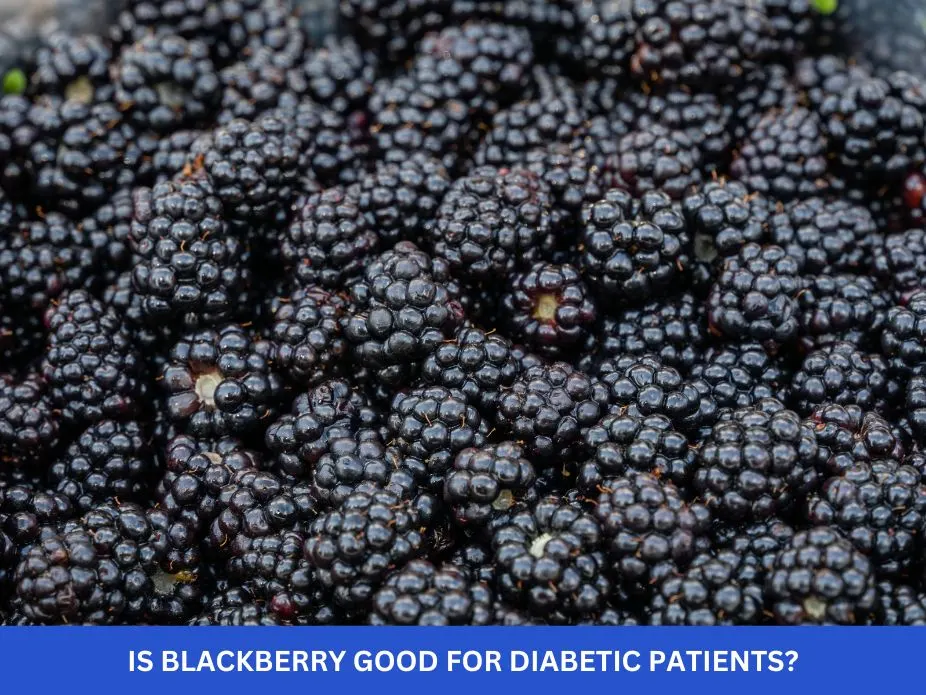Table of Contents
- Understanding the Diabetes-GERD Connection: Symptoms & Causes
- Diabetes and GERD: What’s the Link Between Them?
- Managing GERD Symptoms When You Have Diabetes
- Is There a Correlation Between Acid Reflux and Diabetes?
- Diabetes & GERD: A Guide to Diagnosis and Treatment
- Frequently Asked Questions
- References
Experiencing the uncomfortable symptoms of both diabetes and GERD? You’re not alone. Many individuals find themselves navigating the often-overlapping symptoms of these two conditions, leading to confusion and frustration. This blog post will delve into Diabetes and GERD: Understanding the Link Between Symptoms and Causes, exploring the connections between these seemingly separate health issues. We’ll uncover how diabetes can contribute to GERD and vice versa, providing you with clearer understanding and empowering you to better manage your health. Let’s unravel the complexities and find some answers together.
Understanding the Diabetes-GERD Connection: Symptoms & Causes
Gastroesophageal reflux disease (GERD) and diabetes are often linked, particularly in populations prevalent in Indian and tropical countries. While not directly causative, diabetes significantly increases the risk of developing GERD. This connection is multifaceted, involving several shared physiological pathways. One critical factor is the impact on the lower esophageal sphincter (LES), the muscular valve preventing stomach acid reflux. In individuals with diabetes, nerve damage (neuropathy) can weaken the LES, leading to increased acid reflux and typical GERD symptoms like heartburn and indigestion. This is especially pertinent given the high prevalence of diabetic neuropathy in these regions.
Understanding the Symptoms
The symptoms of GERD in individuals with diabetes can be similar to those in the general population. However, the overlap with diabetic symptoms can sometimes make diagnosis challenging. Common symptoms include heartburn, acid reflux, a sour taste in the mouth, and chronic cough. The severity and frequency of these symptoms can vary greatly. Individuals experiencing persistent or worsening GERD symptoms, especially alongside other diabetic complications, should seek medical attention. Early diagnosis and management are crucial.
Regional Considerations and Causes
In Indian and tropical countries, dietary habits and lifestyle factors can further exacerbate the link between diabetes and GERD. Diets high in spicy foods, fried items, and processed sugars, common in many parts of these regions, can trigger acid reflux. Moreover, a sedentary lifestyle and lack of regular exercise can contribute to both diabetes and GERD. The prevalence of diabetes-related kidney disease, with nearly 30% of diabetics developing diabetic nephropathy, further highlights the importance of comprehensive health management in these populations. Regular checkups and close monitoring of blood sugar levels are vital in preventing and managing both conditions effectively. Understanding the link between diabetes and obesity is also crucial, as obesity is a major risk factor for both conditions. You can learn more by reading our article on Understanding the Link Between Diabetes and Obesity.
Seeking Help
If you are experiencing symptoms of GERD and have diabetes, consult a gastroenterologist or physician in your area. Early diagnosis and management are crucial for minimizing complications and improving your overall quality of life. Take proactive steps towards better health management today. For a more comprehensive understanding of GERD symptoms, please refer to our guide: Understanding GERD and Its Symptoms: A Comprehensive Guide – Tap Health.
Diabetes and GERD: What’s the Link Between Them?
Diabetes and gastroesophageal reflux disease (GERD) share a surprisingly common link, affecting a significant portion of the population, particularly within the 20-64 age group. According to the International Diabetes Federation’s Diabetes Atlas, 61% of all people with diabetes fall within this age range, a demographic also highly susceptible to GERD. This overlap isn’t coincidental; the underlying mechanisms of these conditions are intertwined.
Understanding the Connection
Poorly controlled blood sugar levels in diabetes can significantly impact the lower esophageal sphincter (LES), the muscle that prevents stomach acid from flowing back into the esophagus. High blood sugar weakens the LES, making it more likely to relax inappropriately, allowing stomach acid to reflux, leading to the heartburn and indigestion characteristic of GERD. This is particularly relevant in tropical and Indian climates, where lifestyle factors such as diet and stress can exacerbate both conditions. Weight management is crucial, as obesity, frequently associated with type 2 diabetes, further increases GERD risk. Understanding the connection between diabetes and other metabolic issues is important, such as the link explored in The Link Between Diabetes and Fatty Liver.
Managing Symptoms in Tropical Climates
Individuals in India and other tropical countries often experience heightened GERD symptoms due to dietary habits and environmental factors. Spicy foods, common in many regional cuisines, can trigger acid reflux. Similarly, the high humidity in tropical climates can worsen symptoms for some. Managing diabetes effectively, through diet, exercise, and medication, is crucial in mitigating the risk of developing GERD. Regular check-ups with your doctor are vital, especially for those with diabetes, to monitor blood sugar levels and address any digestive concerns promptly. Seeking guidance from a registered dietitian for personalized dietary advice tailored to your region and health conditions is highly recommended. It’s also important to be aware of other potential symptoms, as explained in Can Diabetes Cause Cramps? Understanding the Connection.
Managing GERD Symptoms When You Have Diabetes
Understanding the Interplay
Diabetes and Gastroesophageal Reflux Disease (GERD) share a complex relationship, particularly relevant in regions like India, where approximately 2.5 million cases of gestational diabetes are reported annually. This high incidence highlights the need for understanding how these conditions interact and impact management strategies. Both conditions affect digestion and can exacerbate each other’s symptoms. For example, high blood sugar levels associated with diabetes can slow gastric emptying, increasing the likelihood of acid reflux. Conversely, GERD medications can sometimes impact blood sugar control.
Practical Tips for Symptom Management
Dietary adjustments are crucial. Small, frequent meals are often better tolerated than large ones. Avoid trigger foods like spicy dishes, fried foods, and citrus fruits common in many Indian cuisines. Maintaining a healthy weight is also important as excess abdominal fat can worsen GERD. Elevating the head of your bed can help prevent nighttime reflux. Regular exercise, even gentle walks, is beneficial for both diabetes and GERD management. Always consult with your doctor or a registered dietitian to create a personalized plan. For more information on managing diabetes effectively, you might find our article on 10 Proven Tips for Effective Diabetes Management helpful.
Seeking Expert Advice in India and Tropical Climates
The warm, humid climate prevalent in many Indian and tropical countries can further complicate GERD management. It’s essential to stay well-hydrated and be mindful of heat-related issues that might intensify digestive discomfort. Regular check-ups with your physician are vital for monitoring both your diabetes and GERD. Don’t hesitate to discuss your symptoms and concerns; early intervention is key to effective management. Finding a doctor experienced in managing both conditions is advisable, especially given the significant prevalence of diabetes in India. For a deeper understanding of GERD, including its symptoms, causes, and treatment options, please refer to our comprehensive guide on Acid Reflux And GERD Symptoms, Causes, and Treatment.
Is There a Correlation Between Acid Reflux and Diabetes?
The link between diabetes and gastrointestinal issues, particularly gastroesophageal reflux disease (GERD), or acid reflux, is a significant concern, especially in regions like India and other tropical countries. While not definitively causative, studies suggest a strong correlation. Many individuals with diabetes experience symptoms of acid reflux, characterized by heartburn, regurgitation, and a sour taste in the mouth. This overlap isn’t surprising considering the physiological changes associated with diabetes.
Understanding the Connection
High blood sugar levels, a hallmark of diabetes, can impact the lower esophageal sphincter (LES), the muscle that prevents stomach acid from flowing back into the esophagus. Impaired LES function, often seen in individuals with diabetes, leads to increased acid reflux. Additionally, the slowed gastric emptying often associated with diabetes can also contribute to GERD symptoms. It’s important to note that the prevalence of comorbidities is high in individuals with diabetes; for instance, over 60% of people with diabetes in India also have hypertension, highlighting the interconnectedness of these health challenges.
Managing Acid Reflux in Tropical Climates
Effective management of both diabetes and GERD is crucial. Lifestyle modifications, such as maintaining a healthy weight, avoiding trigger foods (spicy foods, caffeine, alcohol), and eating smaller, more frequent meals, can significantly alleviate acid reflux symptoms. In tropical climates, staying hydrated is particularly important, as dehydration can exacerbate both conditions. Consult your doctor or a registered dietitian for personalized dietary advice and medication management. Understanding the potential link between diabetes and GERD is the first step towards proactive healthcare management in India and other tropical regions. For more information on the potential dangers of acid reflux, check out our article: Is Acid Reflux Dangerous to Your Health? Find Out Here. And if you’re looking for dietary guidance, our List of Foods to Eat with Acid Reflux can be helpful.
Diabetes & GERD: A Guide to Diagnosis and Treatment
Understanding the Connection
The rising global prevalence of diabetes, projected to increase from 9.8% in 2021 to 11.2% in 2045, highlights the importance of understanding its complications. Gastroesophageal reflux disease (GERD), characterized by stomach acid refluxing into the esophagus, is a common comorbidity in individuals with diabetes. This connection is significant, especially in tropical and Indian countries where both conditions are prevalent, often exacerbated by dietary habits and lifestyle factors. The interplay between impaired glucose metabolism and altered gastric motility contributes to increased GERD risk in diabetic patients.
Diagnosis and Management in Tropical Climates
Diagnosing GERD in individuals with diabetes can be challenging, as symptoms like heartburn and indigestion can mimic other diabetic complications. Thorough medical history, physical examination, and investigations such as endoscopy may be necessary. Treatment focuses on lifestyle modifications, including dietary changes (avoiding trigger foods like spicy dishes common in many Indian and tropical cuisines), weight management, and elevation of the head during sleep. Medication, such as proton pump inhibitors (PPIs) and H2 blockers, may be prescribed to reduce stomach acid production. However, it’s crucial to consult a healthcare professional for personalized management strategies, considering the specific needs and context of tropical and Indian climates.
Regional Considerations and Preventative Measures
In regions like India and other tropical countries, factors such as high ambient temperatures, dietary habits rich in spicy and fried foods, and stress can worsen GERD symptoms in diabetic individuals. Therefore, a holistic approach incorporating culturally sensitive dietary advice, stress management techniques like yoga and meditation, and regular monitoring of blood glucose levels is crucial for effective management. Early diagnosis and proactive lifestyle changes are key to preventing complications and improving the quality of life for individuals with both diabetes and GERD in these regions. Regular check-ups with healthcare providers are essential for timely interventions and personalized care. As you age, managing diabetes can present unique challenges. For helpful advice, consider reading our guide on Managing Diabetes as You Age: Challenges and Solutions. Planning travel while managing diabetes requires careful preparation. Check out our tips in Traveling with Diabetes: Essential Tips for a Safe & Healthy Journey.
Frequently Asked Questions
Q1. What is the connection between diabetes and GERD?
Diabetes significantly increases your risk of developing GERD, especially if you live in India or a tropical region. This is because diabetes can weaken the lower esophageal sphincter (LES), the valve preventing stomach acid from flowing back up into the esophagus, leading to acid reflux.
Q2. How can I tell if my GERD symptoms are related to my diabetes?
GERD symptoms in diabetics can overlap with diabetic symptoms, making diagnosis tricky. If you experience heartburn, indigestion, or other GERD symptoms, it’s important to consult a doctor to determine the cause and receive proper treatment.
Q3. What lifestyle changes can help reduce my risk of GERD if I have diabetes?
Effective diabetes management is key to reducing GERD risk. This includes maintaining a healthy weight, adjusting your diet to avoid trigger foods (like spicy, fried, and sugary foods), and incorporating regular exercise into your routine.
Q4. Are there specific dietary recommendations for diabetics to manage GERD?
Yes, you should avoid foods that trigger GERD symptoms, such as spicy, fried, and processed sugary foods. Working with a doctor or registered dietitian to create a personalized meal plan is recommended.
Q5. How often should I see a doctor if I have both diabetes and GERD?
Regular check-ups with your healthcare provider are crucial for managing both diabetes and GERD. Early diagnosis and personalized treatment plans are vital for improving your quality of life and preventing complications.
References
- A Practical Guide to Integrated Type 2 Diabetes Care: https://www.hse.ie/eng/services/list/2/primarycare/east-coast-diabetes-service/management-of-type-2-diabetes/diabetes-and-pregnancy/icgp-guide-to-integrated-type-2.pdf
- Diabetes Mellitus: Understanding the Disease, Its Diagnosis, and Management Strategies in Present Scenario: https://www.ajol.info/index.php/ajbr/article/view/283152/266731




